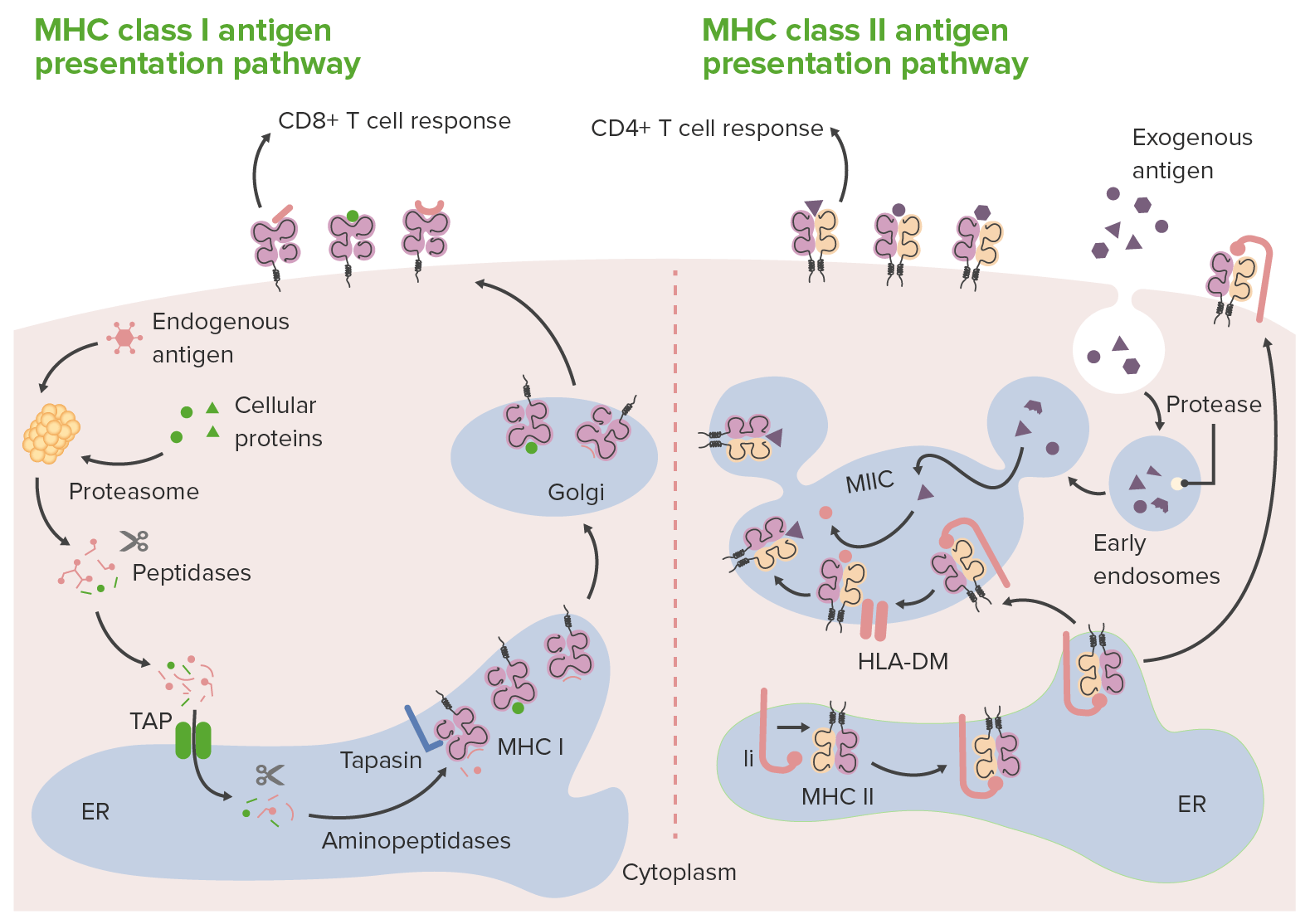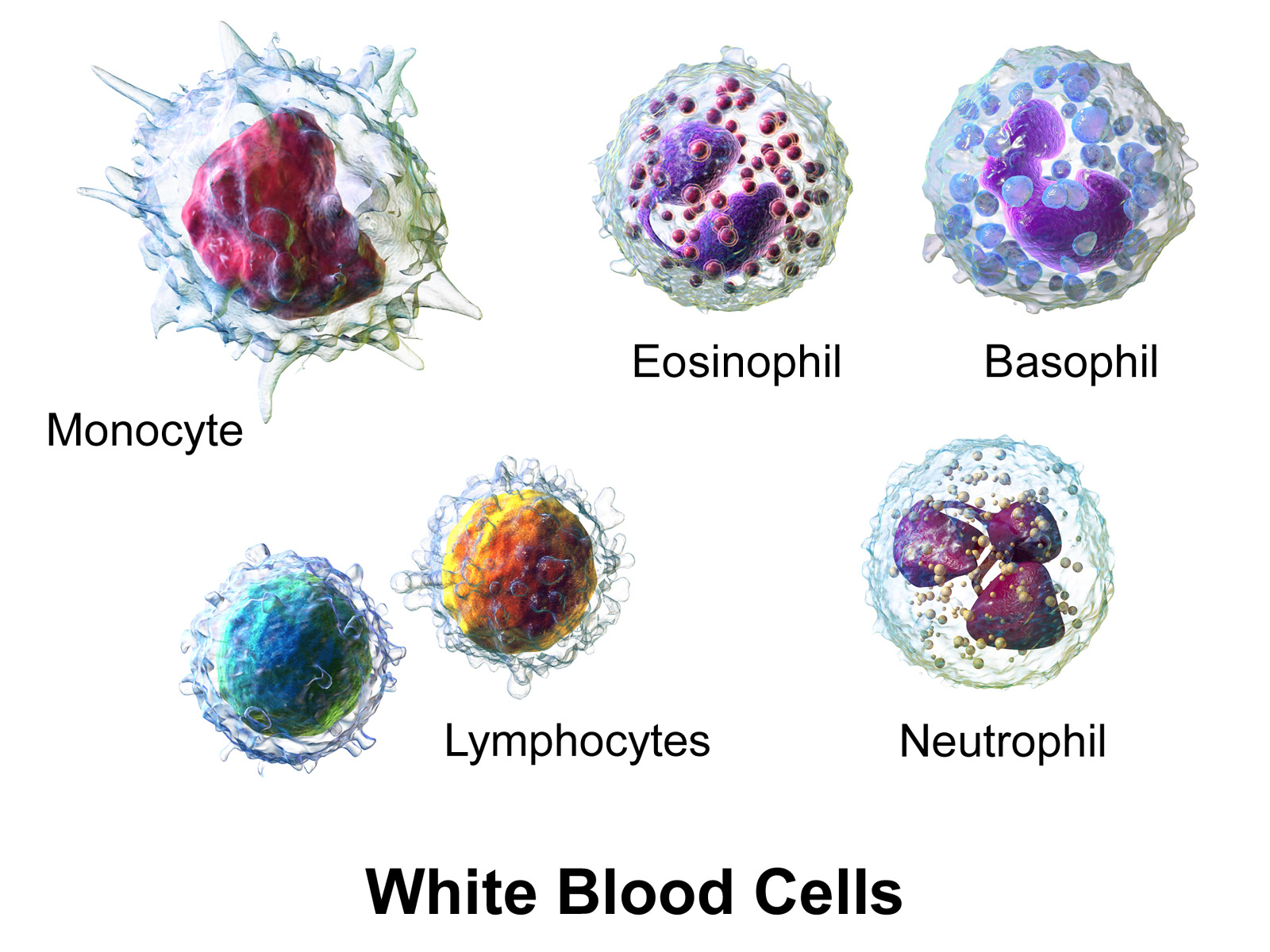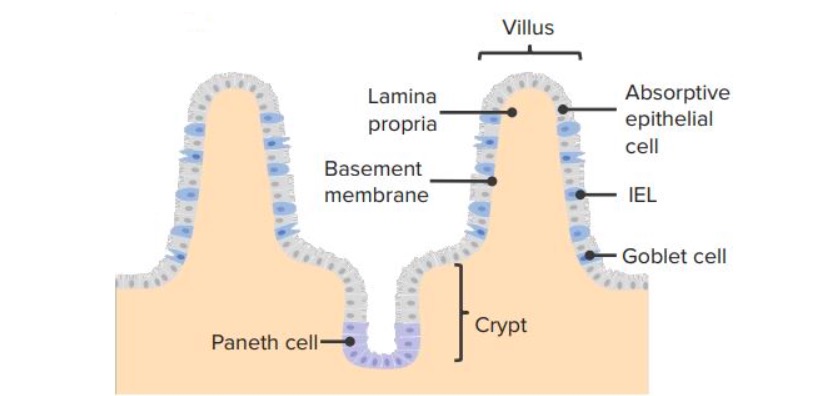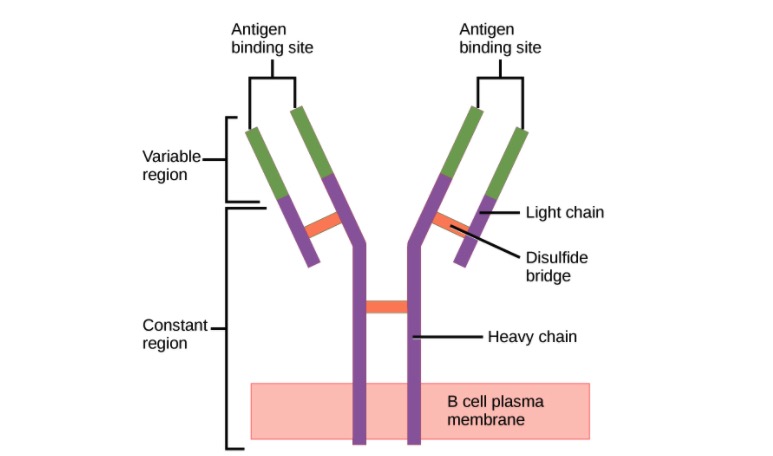Playlist
Show Playlist
Hide Playlist
Dendritic Cells, Eosinophils, Basophils, Mast Cells and Innate Lymphoid Cells
-
02 Slides Cells of Immune System.pdf
-
Reference List Immune System.pdf
-
Download Lecture Overview
00:01 Let's now turn to dendritic cells. 00:03 There are two fundamentally different types of cell that are referred to as dendritic cells. 00:10 Cells that are just called dendritic cells and other cells that are called follicular dendritic cells. 00:17 And really the only thing that these two cell types have in common is their morphology. 00:22 They're named because they have long processes that rather resemble nerve dendrites. 00:28 That's where their name comes from. 00:30 But apart from their appearance, they really have very little in common. 00:35 Although, actually they are both involved in showing antigen to lymphocytes. 00:41 So, they do have that in common. 00:44 So, what are their differences? Well the dendritic cells-- and if you ever come across the term dendritic cell, this is the cell that is being referred to, are like the vast majority of cells of the immune response derived from hematopoietic stem cells. 01:00 In contrast, this is pretty much the only cell of the immune response that isn't derived from hematopoietic stem cells; the follicular dendritic cells are derived from mesenchymal stem cells. 01:13 Dendritic cells are present throughout the body whereas the follicular dendritic cells are pretty much restricted to structures called germinal centers which you find in secondary lymphoid tissues. 01:28 Dendritic cells are initially phagocytic. 01:31 When they're present in the tissues they can engulf microorganisms and fragments of microorganisms, whereas follicular dendritic cells are never phagocytic. 01:42 The dendritic cell possesses on its cell surface as well as many other molecules, MHC class II molecules and a variety of co-stimulatory molecules, particularly the B7 co-stimulatory molecules. 01:56 Whereas follicular dendritic cells lack MHC class II and lack B7 molecules. 02:04 The dendritic cells can activate helper T-cells. 02:08 That's really the job of dendritic cells, is to activate helper T-cells, particularly na've helper T-cells that have never encountered antigen before. 02:17 Seems that for that particular job, activating a na've T-cell, dendritic cells are absolutely obligatory, whereas follicular dendritic cells do not activate helper T-cells, but instead they're specialized to show antigen in its natural native form to B-cells. There are three cell types of the innate response that are particularly specialized for producing inflammatory mediators. 02:42 Eosinophils which are present both in the blood and in the tissues, and characteristically as well as many, many other molecules they secrete, produce a molecule called major basic protein. 02:54 And this they release to the immediate environment of the cell. 02:59 Basophils which are present in the blood and produce histamine, prostaglandins and leukotrienes. 03:07 And mast cells which are very closely related to basophils are present in mucosal surfaces and in connective tissue, and they also release histamine, prostaglandins and leukotrienes. 03:22 Turning now to innate lymphoid cells, perhaps the best characterized of several different types of innate lymphoid cell is the Natural Killer cell. 03:34 And these can induce apoptotic cell death in infected cells using one of two different pathways: the Fas/FasLigand pathway, or alternatively the Granzyme/Perforin pathway. 03:52 Other types of Innate Lymphoid Cells have functions rather similar to the helper T-cells and regulatory T-cells of the adaptive immune response.
About the Lecture
The lecture Dendritic Cells, Eosinophils, Basophils, Mast Cells and Innate Lymphoid Cells by Peter Delves, PhD is from the course Immune System: Overview and Cells. It contains the following chapters:
- Dendritic Cells
- Cells to Produce Inflammatory Mediators
- Innate Lymphoid Cells
Included Quiz Questions
Which of the following is most characteristic of eosinophilic granules?
- Major basic protein
- Histamine
- Prostaglandins
- Leukotrienes
- Interferon
Which of the following is NOT a characteristic of a dendritic cell?
- Specialized to present antigens mainly to B cells
- Derived from hematopoietic progenitor cells
- Initially phagocytic
- Present in tissues in contact with the external environment
- Possess MHC class II and costimulatory molecules
Which of the following cells is a part of the innate immune system and may induce apoptotic cell death via the FasR/FasL pathway?
- Natural killer Cell
- Mast cell
- Eosinophil
- Basophil
- Monocyte
Customer reviews
5,0 of 5 stars
| 5 Stars |
|
3 |
| 4 Stars |
|
0 |
| 3 Stars |
|
0 |
| 2 Stars |
|
0 |
| 1 Star |
|
0 |
Very good lecture. I like all the lectures from this professor. He is always very clear and good at explaining things.
he brings immunology to life in a very clear way with regulated pace that facilitates understanding
This lecturer is very good; delivers at a great pace and you can tell he is very experienced and knows his stuff. No fluffing or stumbling over his words- goes into good detail.







